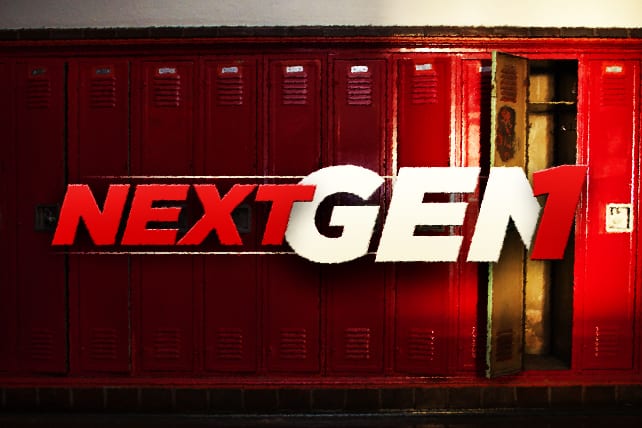In previous posts I noted features of the next generation, taken from a talk I’ve been giving to student pastors this spring. What are we to do to reach and keep them? Here are some ideas:
1. Give them unchanging truth, differently. You don’t have to be an elite cultural watcher or contemporary philosopher to understand how dramatically our world has changed in a couple of decades. From “gay marriage” to transgendered bathrooms, issues not even considered a possibility have become reality in the lifetime of Millennials. This represents an even larger reality: We as believers have lost the home field advantage in culture. Let me say a couple things based on personal observation: First, I personally have not seen a sudden rise in hatred toward Christians or a dramatic denial of fundamental truths seen in the gospel. I have, however, seen a significant decline in a biblical mind and basic understanding of truths of Scripture we once could assume people knew.
You could once upon a time engage a lot of people with the Romans Road, for instance, beginning with Romans 3:23. You could assume most folks believed in a God and in some basis of awareness of sin. Today, if you start talking about “all have sinned” in a place like Raleigh, you may get a response like “yes, all have sinned, like those Christians who want to take away my right to choose what to do with my body.” In other words, more and more people today don’t start with the same belief about Who God is and what sin is.
Do we jettison the Roman Road? By no means. We just share it the way Paul did! Paul started with Creation, not with the Fall. Romans 1:20: In creation, Paul writes, God’s invisible attributes are seen. Then and only then does Paul go into a greatly detailed explanation of the impact of the Fall in Romans 1-3, leading to the passage we see in 3:23.
Let me say it another way: In Acts 2, Peter proclaimed the gospel. He quoted the Old Testament and he proclaimed Jesus as the Messiah. Later, in Acts 17, Paul stood before pagan philosophers. He did not quote the OT, nor did he proclaim Jesus as the Messiah. Why the difference? Because Peter spoke to devout Jews at Pentecost, while Paul preached to Gentiles. Paul started with creation and appealed to their reason as he proclaimed the resurrected Lord.
I was born in a Western context much like Acts 2 and Jerusalem. We now live in Athens.
I see too many Christian leaders either beating their chests to brag about their particular method, implying theirs is the biblical approach, or condemning others who don’t use their pre-approved method. I personally like any method that honors God and reaches people (nothing works if you don’t do it, after all). But a given method, like door-to-door, cold calling (which I still do) is a method, as is investing in an unsaved friend over years to reach him/her (which I also do). We must be involved in both, and stop the lowest-common-denominator, cookie-cutter approach to something as glorious as preaching Christ. Getting a group in a room to learn a presentation is far easier than helping believers share Christ out of who they are personally and in various situations they encounter. The latter is much more difficult, but in the long run far more effective.
Our argument over methods is a sad reflection of our cultural captivation. Os Guinness in Fool’s Talk notes this is the great “how-to” era, where we have 12 steps to this, or four ways to do that. In the middle of all our lists we have lost the transcendent power of the cross. Can we replace our hubris on the one hand with humility, and the disobedience to fulfill the Great Commission on the other with passionate proclamation, and encourage one another to reach our Jerusalem?
I would submit the next gen needs less simplified, two-minute gospel presentations, and more of a beautiful, awe-inspiring view of Jesus. We can understand the gospel at least a couple of ways: first, in its essence, the announcement that God has come to us, that Jesus is the sinless Savior, who died for us and rose again, and that by repentance and faith we can have life in His name. Him we proclaim!
But we can also see the gospel as the epic story that takes the entire Word of God to grasp in its fullness: the grand narrative of Creation, Fall, Rescue, Restoration which shows the world how Jesus does more than get us out of hell; His work on our behalf explains everything that matters to us in all reality. The reason we love movies and sports, why we want businesses to succeed and relationships that last, and so much more all flow out of God’s great redemptive Story.
The next gen needs this grand story. They need to see the awe of God. In Acts we see terms like “astonished, awe, marveled, wondered, great fear” and others. Today we experience these in movie theaters rather than in our Christian gatherings. The next gen needs to hear the truth, to be sure, but they also need to see its reality.
This is why Jimmy Scroggins is seeing many unchurched young adults come to Christ in South Florida using the Life on Mission: 3 Circles. This tool shows the hearer the gospel in its great story. It’s why I’ve seen more unchurched young adults come to Christ using that tool or The Story more than any other approach.
What have you found to be most effective in reaching the lost and growing the saved in the next gen?













